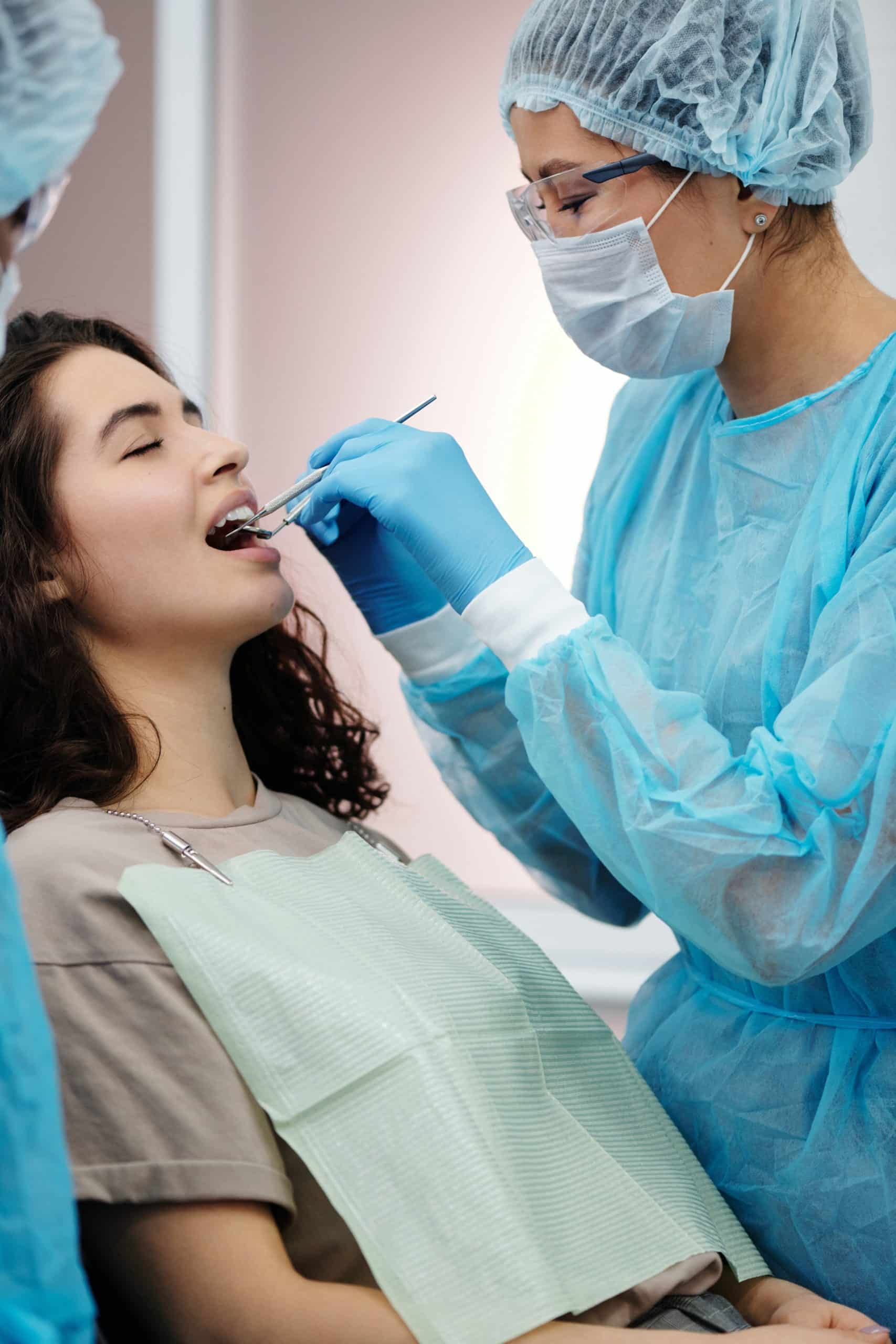
What is a dental check-up?
A dental check-up is a periodic visit to the dentist twice a year (every six months) for a dental examination, to check if some growing dental issues can be diagnosed and treated before it progresses to a severe stage.
What happens during a dental check-up?
There are two parts of a dental check-up, which include the inspection of the gums and teeth status and the cleaning of the patient’s teeth.
Firstly, the dentist will inspect the teeth for the presence of any carious lesions. X-rays are performed to find to identify any cavities in between the patient’s teeth. During this examination, a check for plaque and calculus is also done. Where plaque is a sticky layer of debris and soft deposits of the teeth. If the plaque is not removed within 24 hours, it will calcify to a harder substance called calculus.
Next, the status of the gums is checked. This is done by using a special dental instrument called a probe. This is used to measure the gum pockets which are the spaces between the gums and the teeth.
Secondly, the teeth are also cleaned and polished during this visit. Professionally the teeth are cleaned by scaling while this can also be done at home by brushing and flossing daily.
After this, polishing is done by applying a paste over the surface of the tooth and lastly, the dentist will floss the patient’s teeth. The dentist also examines the tongue, face, neck, and throat.
Importance of regular dental check-ups
Going for a dental check-up every six months is important because it keeps your teeth and gums healthy. If any caries is developing or developing gingivitis, it can be diagnosed and addressed before it reaches a stage where you have to invest a lot of restorative procedures.
Following are some of the benefits of regular dental check-ups:
- Prevention of plaque accumulation, calculus, and caries formation
Even those people who brush twice every day and floss after every meal and bound to miss some places where food and debris accumulate. This then develops into the plaque by the action of bacterial flora present in the oral cavity.
If the existing plaque is not removed, it may calcify into calculus which is a much harder substance and is impossible to remove with professional help. Excessive accumulation of plaque can lead to the development of caries. The only sign of which is toothache and then the damaged tooth needs to be filled and fixed.
To avoid all this, it is better to go for regular dental cleanings instead of having to spend of fixing the problems.
- Monitoring of gum status
An average person can not be able to see the early signs of any developing gum disease. But thankfully, dental professionals are trained enough to be able to catch onto the signs and symptoms of developing gingivitis or periodontitis.
The dentist identifies the gum diseases by checking for gingival pockets, receding gums, red and swollen gums. This can be treated by improving his eating habits and by improving oral hygiene practices.
- Identification of oral cancers
Along with the examination of the teeth and gums, the dentist also looks for signs of developing oral cancer which is a life-threatening disease.
An exam called the VELscope cancer exam is used for the detection of oral cancer. It helps in catching the microscopic dead cells of oral cancer and shining a special light in the oral cavity. It is a completely painless procedure that only takes one or two minutes.
A person who goes for regular dental check-ups is spared from developing late-stage oral cancer.
- Keeps a check on developing bad habits
Everyone has a bad habit that goes unnoticed by that person which is deleterious for oral health. These include eating ice, smoking, eating sweets, drinking coffee and wine daily, and many more.
By routine dental check-ups, the dentist can counsel the patient on quitting these habits and adopting a better lifestyle that is better suited for his or her oral health.
- Use of X-rays to find underlying causes
Many problems cannot be addressed by just looking at the teeth and need x-rays to be done. Some of the problems involve a misaligned impacted wisdom tooth, any swelling in the underlying bone, and jaw injuries.
This can only be detected by regular visits to the dental office.
To sum up:
It is important to schedule a regular dental check-up after every six months with the Good Dentist because it helps in the detection of many dental issues which could otherwise not be done. This includes the diagnosis of developing gum diseases, oral cancers, and injuries to the underlying bone and jaws. Thus, it is worth the effort of going to the dentist instead of spending money on restorative treatments.

